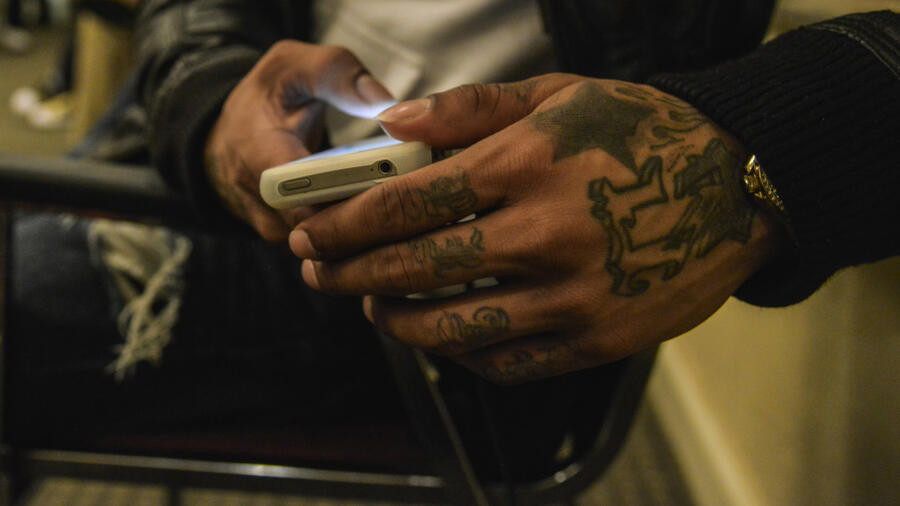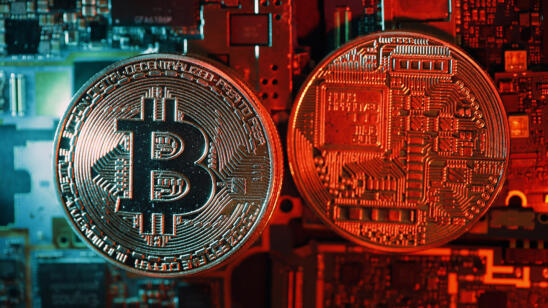Someone must have run their mouth about Michael Santos, because when he arrived at his Miami condo on a summer day in 1987, federal agents were already waiting there to arrest him.
He was charged with operating a cocaine-trafficking enterprise, which in the late ’80s might as well have been for murder as far as the courts were concerned. Due to the political hysteria surrounding the drug trade and mandatory minimum sentences at the time, Santos suddenly found himself facing life in prison without the possibility of parole. He was 23.
Santos was found guilty on all charges and spent 26 years in confinement (25 years in prison and another year in a halfway house in federal custody). Meanwhile, the world outside his prison walls was rapidly changing with major advances in technology. With little-to-no access to computers, most prisoners in the U.S are left behind. When Santos became a free man on August 12, 2013, he stepped into a totally different world. But he was ready for it. He was even writing articles for major news websites while behind bars. (He would handwrite them and his wife would be his liaison to the editors.)
A&E True Crime spoke with Santos about what it was like to enter a world so dependent on technology after being incarcerated for so long.
For those who weren’t around in the ’80s, what kind of technology were people using before your arrest?
We didn’t use technology to the extent we do today. Smart phones obviously weren’t around yet, but there were early mobile phones. [They were] these large contraptions. I had one. They were pretty expensive to purchase and use. I probably paid $5,000 or $6,000 for that phone. And it would cost me $400 to $600 a month to use it, because you paid by the minute. It was expensive, but it was the only piece of technology I used other than consumer goods like stereos and televisions, VCRs, cars, electric toothbrushes and CD players. Technology just wasn’t around back then the way it is now.
You were sentenced to 45 years in prison. Describe that first day of your sentence.
After they arrested me at gunpoint, I knew I was facing very serious charges, but I was banking on my attorney being able to exonerate me. I was trying to process everything and I was afraid. I was shaking.
I was under the assumption that [it] was a temporary situation and my attorney would prevail. I would get out of prison and probably go right back to crime. It wasn’t until I was convicted that things changed for me. I started thinking about the people I wanted to meet in the future and wondering if there was anything I could do to reconcile with society.
What did your days in prison consist of after that initial shock had worn away? Describe an average day.
A lot of times people in prison focus on joining gangs, increasing their prison reputation, running a poker table, participating in contraband and underground economies or even just getting control of the television. For me, it was different because I had this vision that I was going to come back to society unscathed and with my dignity intact, ready to function in any environment.
I would go to bed early and wake up early to study. I took classes from Ohio University, then from Mercer University, where I earned my undergraduate degree. I went on to earn my Master’s Degree from Hofstra University. I started a Ph.D program at UConn (University of Connecticut) but was barred from continuing by a warden who didn’t believe prisoners should have Ph.Ds.
Then I started publishing books. I got married. I lived a very solitary life inside, always focusing on what I could do with the time that I had and the resources around me to avoid volatility and focus on achieving goals. I would say it was very different from the way other people chose to serve their time.
Through the forms of media that were available to you— television, newspapers, magazines—you knew how technology was changing outside. Did it interest you, or did you just feel left out?
I made technology very much a part of my life when I was in prison. I spent a lot of my time educating myself about it. Technology really accelerated right about the time I started generating revenues from my writing, and I responded by investing in it.
I opened a brokerage account in the mid-1990s and made a ton of money investing in Yahoo and America Online. At one point I made over a million dollars in prison from investments. But of course, what goes up must come down, and I lost hundreds of thousands of dollars as well. By the time I was in my 13th or 14th year, I made several hundred thousand dollars after taxes, which really changed my life.
Although I couldn’t use technology, I could learn about it, I could assess its value, I could anticipate which companies were going to grow and then invest in them. That participation from inside prison made me feel like part of the community again.
Describe your first day of freedom, particularly with regard to technology.
As soon as I got out, I was exposed to technology right away. About a week before my release, I had my wife purchase two iPhones. Right when I got in the car, she handed one of them to me. It was about a three-hour drive from the prison in Atwater, California to the halfway house in San Francisco, and I was using the phone the whole way. My wife was showing me how to send a text message and how to send emails. I was getting bombarded with phone calls.
I got into the halfway house several hours later and was just fascinated with my phone and was trying to learn how to apply all the technology that I’d learned—things like accessing Safari and looking over my own web page, trying to figure out what I could do with it. I was locked in a halfway house for [the first] two or three days, but I could use my phone. I really enjoyed watching my first YouTube videos and sending my first emails.
Three days later, I got out of the halfway house to go to a job that I had lined up. Before I got there, I had my wife purchase an Apple Macbook Pro. I spent my first day at my new job just figuring out how it worked. That really was quite a challenge, but it was also very exciting. I learned how to use [it] by watching YouTube videos and from a friend.
I did make a drastic error once when I told my wife, ‘Well, now that I’ve got a computer, I’m going to take over my website and try to do the things I wasn’t capable of doing in prison.’ I used to keep a journal throughout my prison term, and in the process of switching my web hosting service, I ended up losing probably 20 years-worth of journals that I [accidently] deleted because I didn’t know how to use the web well.
Do you feel alienated by society’s total reliance on technology, or have you become just as reliant?
I’m completely reliant. I use technology every single day. I built my business, Prison Professors, from technology, and clients find me through technology. I also run numerous other websites and a YouTube channel. I’ve got 10,000 people following me on social media. It’s how I earn a living and it’s how I document my journey. I now feel very fluent with technology, but I’m always eager to learn more.
Related Features:
From Cons to Coders: How Some U.S. Prisons Are Teaching Tech
60 Days In: Watch Full Episodes
How Inmates Help Solve Cold Case Murders While Playing Cards


